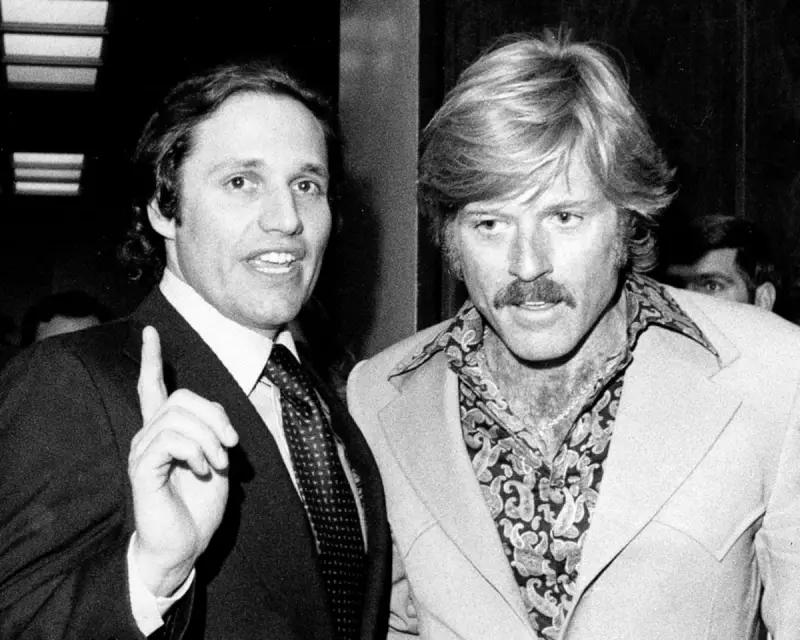
In a remarkable revelation that bridges Hollywood glamour with hard-nosed journalism, screen icon Robert Redford has shed new light on the intricate dynamics behind one of cinema's greatest political thrillers. Speaking exclusively to The Guardian, the 88-year-old legend delved into the creation of 'All The President's Men' and his fascinating relationship with the man he portrayed: investigative reporter Bob Woodward.
The casting of Redford, then at the peak of his star power, as the determined Washington Post reporter was initially met with scepticism. Redford himself admitted to reservations about whether his Hollywood status would undermine the film's journalistic credibility. "I was concerned my presence would distract from the authenticity," he revealed, acknowledging the delicate balance between star power and serious storytelling.
The Unconventional Collaboration
What emerges from Redford's account is a portrait of an unexpectedly complex partnership between actor and subject. Rather than the typical collaborative relationship, Redford described a process of careful observation and subtle negotiation. He studied Woodward's mannerisms, work ethic, and relentless pursuit of truth, yet maintained enough artistic distance to create a compelling character rather than a mere imitation.
The tension between dramatic storytelling and journalistic accuracy became a central theme throughout production. Redford explained how he worked to capture Woodward's essence while ensuring the film remained accessible to audiences unfamiliar with the intricate details of the Watergate scandal.
Preserving Journalistic Integrity
Redford's commitment to authenticity extended beyond performance. He became deeply invested in protecting the integrity of the journalists' work, understanding that the film would introduce Watergate to a generation beyond the newspaper readership. "This wasn't just entertainment," he emphasised. "We were handling real history, real people's lives, and real journalism that changed a nation."
The actor-producer described lengthy discussions about how to visualise investigative work—the endless phone calls, document reviews, and dead ends that don't naturally lend themselves to cinematic excitement. The solution became one of the film's most celebrated aspects: the atmospheric portrayal of the Washington Post newsroom as a character in itself.
Enduring Legacy and Relevance
Nearly five decades after its release, Redford reflects on why 'All The President's Men' continues to resonate. He sees the film as a timeless testament to the importance of investigative journalism and the courage required to hold power accountable—a message he believes remains crucially relevant in today's political climate.
The relationship between Redford and Woodward evolved over the years, with both men recognising they participated in creating something larger than themselves. The film not only documented history but became a cultural touchstone that continues to inspire journalists and filmmakers alike.
Redford's candid reflections offer a unique glimpse into the making of a cinematic masterpiece that forever changed how journalism is portrayed on screen. His story serves as a powerful reminder of film's ability to preserve and celebrate moments of profound historical importance while creating enduring art that transcends its era.






